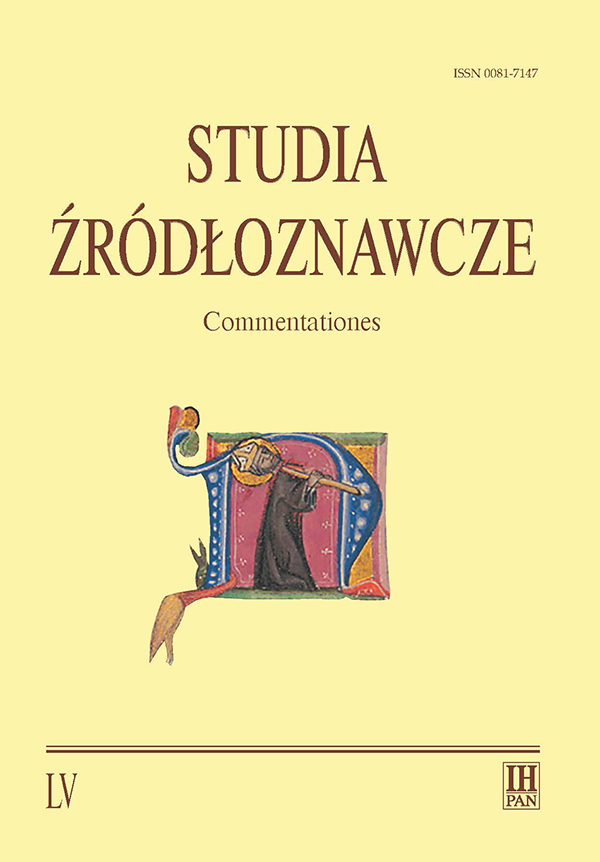Wędka króla Rusinów (Gall Anonim, ks. 1, rozdz. 7)
A fishing rod of the king of the Ruthenians (Gallus Anonymus, Book I, chapt. 7)
Author(s): Paweł ŻmudzkiSubject(s): Oral history, Political history, Ancient World
Published by: Instytut Historii im. Tadeusza Manteuffla Polskiej Akademii Nauk
Keywords: Gallus Anonymus; king of Ruthenians; fishing rod; royal angling; The Fisher King; Plutarchos; Antony; Waltharius; Liudprand of Cremon
Summary/Abstract: The purpose of the article is an attempt to solve the following question: why did Gallus Anonymus present the king of the Ruthenians fishing with a fishing rod at the very moment of Boleslaw Chrobry’s attack, which inflicted a catastrophic defeat upon Rus’? In the Chronicle the king of the Ruthenians is presented as an unwarlike and cowardly man, but this in itself does not explain, why the chronicler placed him in a boat, fishing. The matter is not made clear by the medieval adaptations of this anecdote by Wincenty Kadłubek and Jan Długosz. None of them understood the sense Gallus gave to the motif of fishing rod and both changed its meaning. Also the cases of fishing described in the Bible have a different character altogether. But a useful context is given by motif of fishing rod and fishing people in stories certainly unknown to Gallus Anonymus. The article presents a choice of texts where fishing refers to military matters and brings disgrace to the king or hero: Le roman de Perceval ou le conte du Graal by Chrétien de Troyes (the Fisher King), Plutarch’s Life of Antony, Waltharius, the story about Arnulf conquering Rome in the Antapodosis by Liudprand of Cremona. The comparison makes it possible to say that in the medieval literature the fishing rode quite often plays the role of anti-attribute that given to a king or warlike hero becomes a clear sign of the lacked or lost ability to command the army and fight war, or of the betrayal of the honour of a brave soldier. On the other hand, the association with fishing or with using a fishing rod is not disgraceful for people who do not aspire to military functions or actions, as illustrated by the examples of Wanda-Węda in the Chronica Poloniae maioris (Chronicle of Greater Poland), and of Saint Zeno of Verona in De Zenonis vita sermo Coronati Notarii.
Journal: Studia Źródłoznawcze. Commentationes
- Issue Year: 2017
- Issue No: 55
- Page Range: 27-50
- Page Count: 24
- Language: Polish

